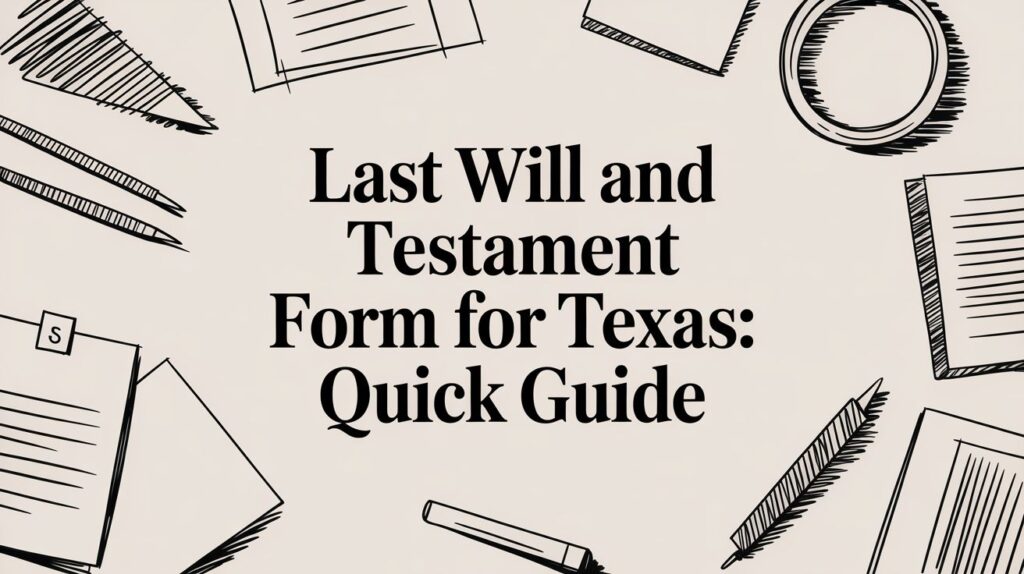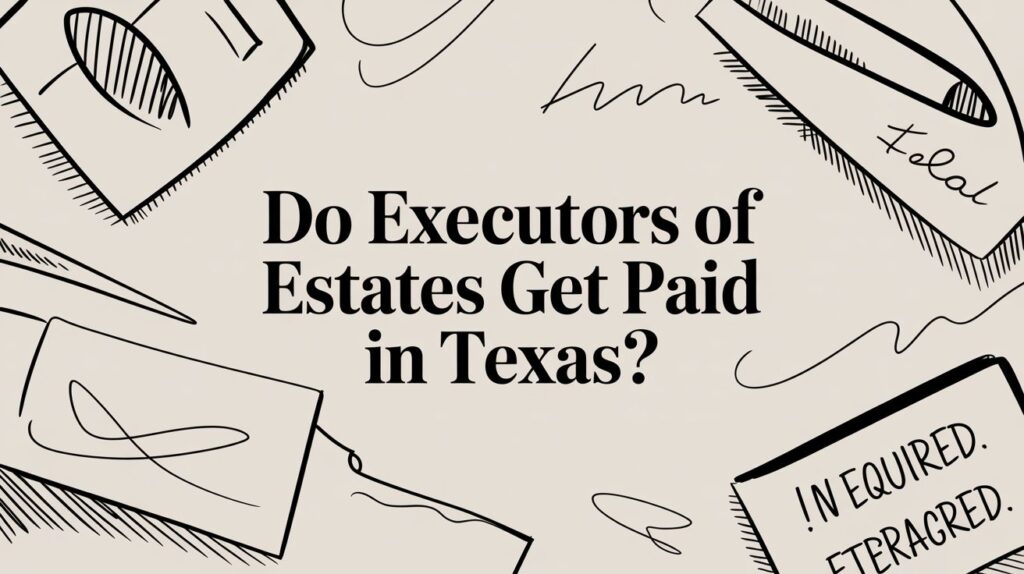When someone passes away in Texas, the process of distributing their assets, including real estate, often goes through the probate system. While probate serves to validate a deceased person’s will and oversee the administration of their estate, it can also involve selling off assets to settle debts or distribute the remaining inheritance. Real estate is one of the most significant assets people hold, and selling it during probate often involves auctions. However, real estate auctions in Texas probate come with specific legal guidelines that executors and beneficiaries must follow. This article will provide a comprehensive overview of probate, how real estate auctions fit into the probate process, and the legal framework guiding these auctions in Texas.
What Is Probate in Texas?
Probate is a legal procedure used to prove the validity of a will, settle a deceased person’s debts, and distribute their remaining assets to heirs or beneficiaries. The Texas probate process starts by filing the will with the county court where the deceased person lived. If the will is validated, the court will appoint an executor (if named in the will) or an administrator (if no will exists or if the named executor is unavailable) to handle the estate’s affairs.
Often, real estate becomes a focal point in probate, especially if the estate needs to sell the property to pay off debts or split the value among multiple heirs.
Real Estate in Probate
Real estate owned by the deceased is usually one of the most valuable assets in an estate. Under Texas law, unless the will specifically dictates that a property is to be transferred directly to a beneficiary, it may need to be sold. This often happens when:
- The estate owes debts that need to be paid, and there aren’t enough liquid assets (cash or easily sellable investments) to cover these debts.
- Multiple heirs are to inherit the property but wish to divide the value of the estate equally, making the sale of the property a practical solution.
- The deceased did not leave a will (intestate), and the court determines that selling the property is the best way to distribute the estate fairly.

In such cases, the probate court may order a real estate auction to sell the property.
Real Estate Auctions: The Basics
A real estate auction is a public sale where potential buyers place competitive bids on the property. Auctions can be advantageous during probate because they provide a transparent and often faster way to sell the property. Auctions can either be court-supervised or private, depending on the circumstances surrounding the probate case.
There are two primary types of auctions for probate real estate sales:
- Court-Ordered Auctions:
- These auctions are directly supervised by the probate court, often when disputes among heirs arise, or when it’s deemed necessary for settling debts.
- The court sets the rules, determines the minimum acceptable bid, and decides how to distribute the proceeds among creditors and heirs.
- Private Auctions:
- In cases where the executor has more freedom, they may opt for a private auction, handled by an auction company, without the direct oversight of the court.
- These auctions are still subject to probate court approval but operate more independently.
- Court-Ordered Auctions:
Legal Guidelines for Probate and Real Estate Auctions in Texas
Texas probate law has detailed guidelines and procedures to ensure that the sale of real estate in probate is fair and transparent. Executors and estate administrators must adhere to these legal guidelines to avoid disputes or potential legal challenges.
1. Executor’s Authority to Sell Property
One of the first considerations is whether the executor or administrator has the authority to sell the property. If the will gives the executor this authority explicitly, they can proceed with the sale, provided they follow Texas probate law. However, if the will does not grant this authority, or if there is no will, the executor must seek approval from the probate court before selling the property.
If the estate is insolvent, meaning it has more debt than assets, Texas law requires the court to oversee the sale of any property to ensure the fair settlement of debts.
2. Notices of Sale
Texas law requires that sellers provide proper notice when auctioning real estate to ensure the sale remains transparent. This notice must typically be:
- Published in a local newspaper, usually once a week for at least three consecutive weeks before the sale.
- Sent to any known heirs, creditors, and other interested parties.
- Posted publicly at the courthouse and possibly other designated public locations.
This ensures that all parties are aware of the auction and have the opportunity to participate or raise any objections.
3. Bidding Process
During a real estate auction in probate, the bidding process is tightly regulated. If it’s a court-supervised auction, the court sets the rules for the minimum acceptable bid. If it’s a private auction, the executor or auction company can set the bidding rules, but they must still seek final approval from the court before completing the sale.
After determining a winning bid, the bidder submits it to the probate court for final approval. If the court finds the bid acceptable and in the best interest of the estate and its creditors or heirs, it finalizes the sale.
4. Fair Market Value Consideration
Texas probate law requires that any sale of real estate should aim to achieve a price close to the fair market value. This prevents the sale of the property for less than its worth, protecting the interests of creditors and heirs. Executors often need to obtain a property appraisal before listing it for auction to determine its fair market value.
5. Distribution of Proceeds
After the property is sold at auction, the proceeds are distributed according to the probate court’s directives. In most cases, this involves:

- Paying off any outstanding debts, including mortgages, taxes, and liens on the property.
- Compensating creditors, if the estate owes money.
- Distributing the remaining funds to heirs or beneficiaries according to the will or Texas intestate succession laws if there is no will.
6. Executor’s Fiduciary Duty
As the executor of a probate estate, you are a fiduciary, meaning you have a legal duty to act in the best interest of the estate and its beneficiaries. This duty extends to handling the sale of real estate. Ensure that you conduct the auction fairly, market the property properly, and achieve the best possible price. Failing to meet these responsibilities can lead to legal disputes and possible personal liability for the executor.
Challenges and Pitfalls in Probate Real Estate Auctions
While auctions can be an efficient way to sell real estate during probate, there are several potential challenges and pitfalls to be aware of.
Disputes Among Heirs
It is not uncommon for disputes to arise among heirs when it comes to selling real estate. Some may want to sell, while others may prefer to keep the property. These disputes can delay the auction process and may require the intervention of the probate court to resolve.
Creditor Claims
Creditors often have a claim to the proceeds from the sale of real estate, especially if the deceased had outstanding debts. It’s essential to settle these claims before distributing any remaining funds to heirs. If not handled properly, creditor claims can result in legal challenges and delays in the probate process.
Challenges in Determining Fair Market Value
Determining the fair market value of a property can sometimes be contentious. Appraisals vary, and heirs may dispute if they believe the property sold for less than its worth. Ensuring a proper appraisal and having clear communication with beneficiaries can help mitigate this risk.
Tips for Executors Handling Real Estate Auctions in Texas Probate

If you are an executor tasked with managing a real estate auction in Texas probate, here are a few tips to help you navigate the process:
- Hire an Experienced Attorney: Probate law is complex, and the sale of real estate adds a layer of complexity. An experienced probate attorney to guide you through the legal process can help ensure you comply with all legal requirements.
- Work with a Reputable Auction Company: If you are conducting a private auction, make sure to work with an established and reputable auction company. They can help you market the property, handle the bidding process, and ensure a successful sale.
- Communicate with Heirs and Creditors: Open and transparent communication with all interested parties—heirs, beneficiaries, and creditors—can help prevent disputes and ensure that everyone understands the process.
- Keep Accurate Records: As the executor, you are responsible for maintaining accurate records of all transactions related to the sale. Keeping meticulous records will protect you if any legal challenges arise later.
Key Takeaways for Texas Probate Real Estate AuctionsConclusion
Real estate auctions play a critical role in the Texas probate process, providing a way to liquidate valuable assets to pay debts or distribute inheritances fairly. While the process can be complex, understanding the legal guidelines governing probate real estate sales and auctions can help executors navigate the path with confidence.
By following Texas probate law, obtaining proper appraisals, ensuring transparent bidding, and working closely with legal and real estate professionals, executors can fulfill their duties while minimizing the risk of disputes or complications. With the right approach, probate real estate auctions in Texas can result in a fair and efficient outcome for all parties involved.








